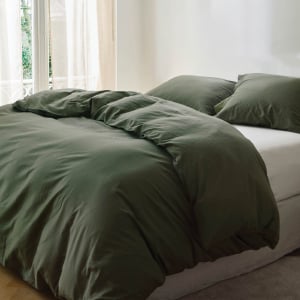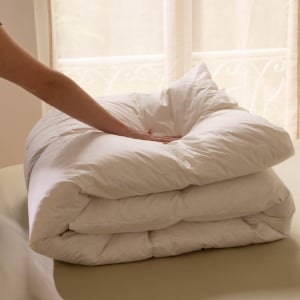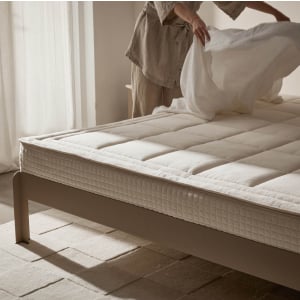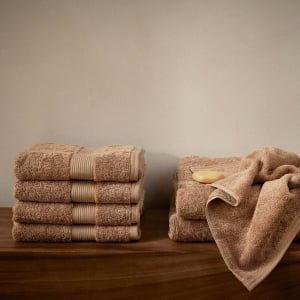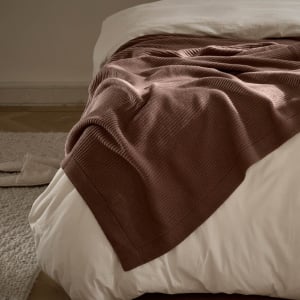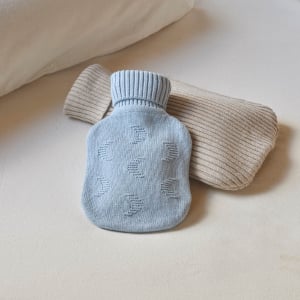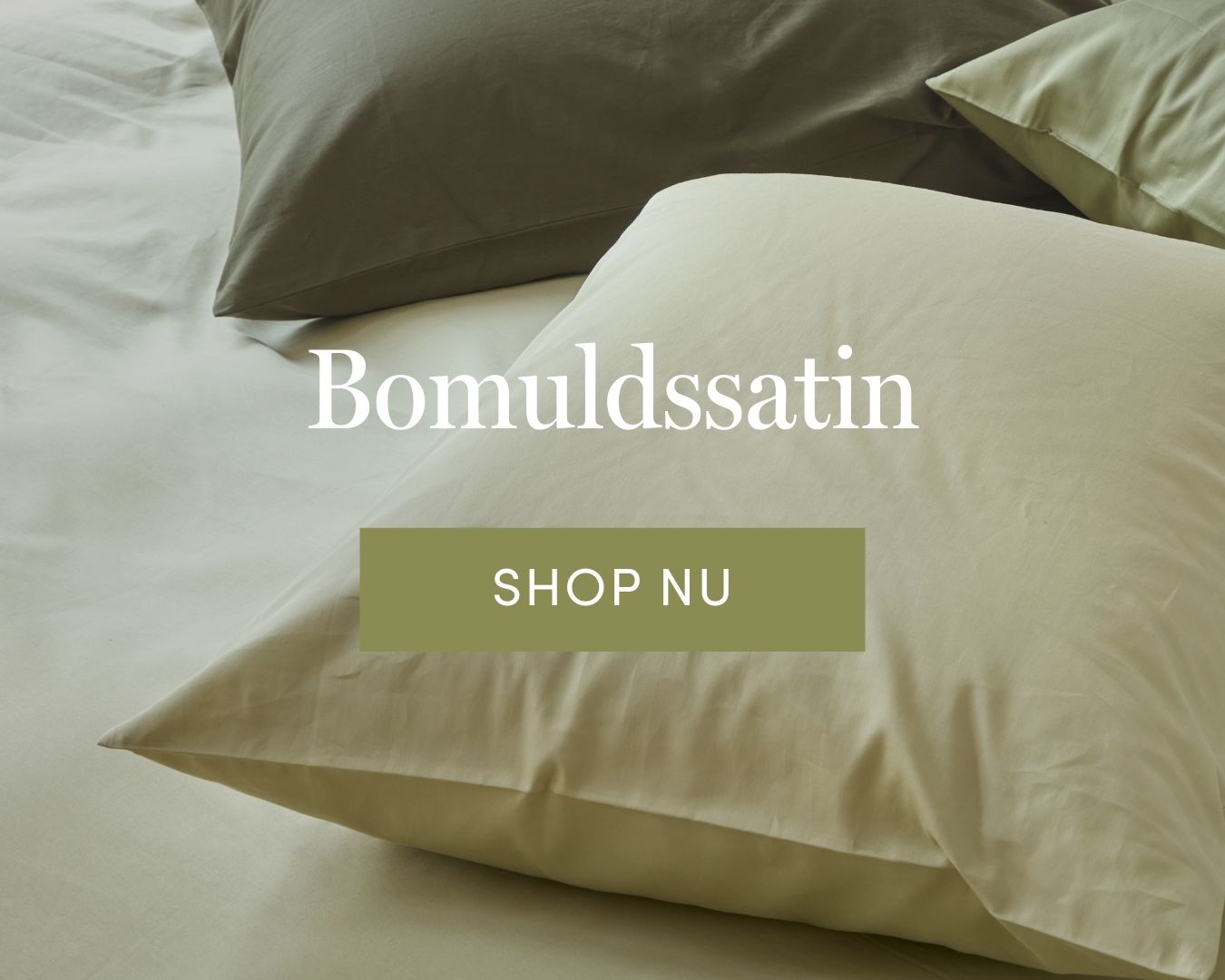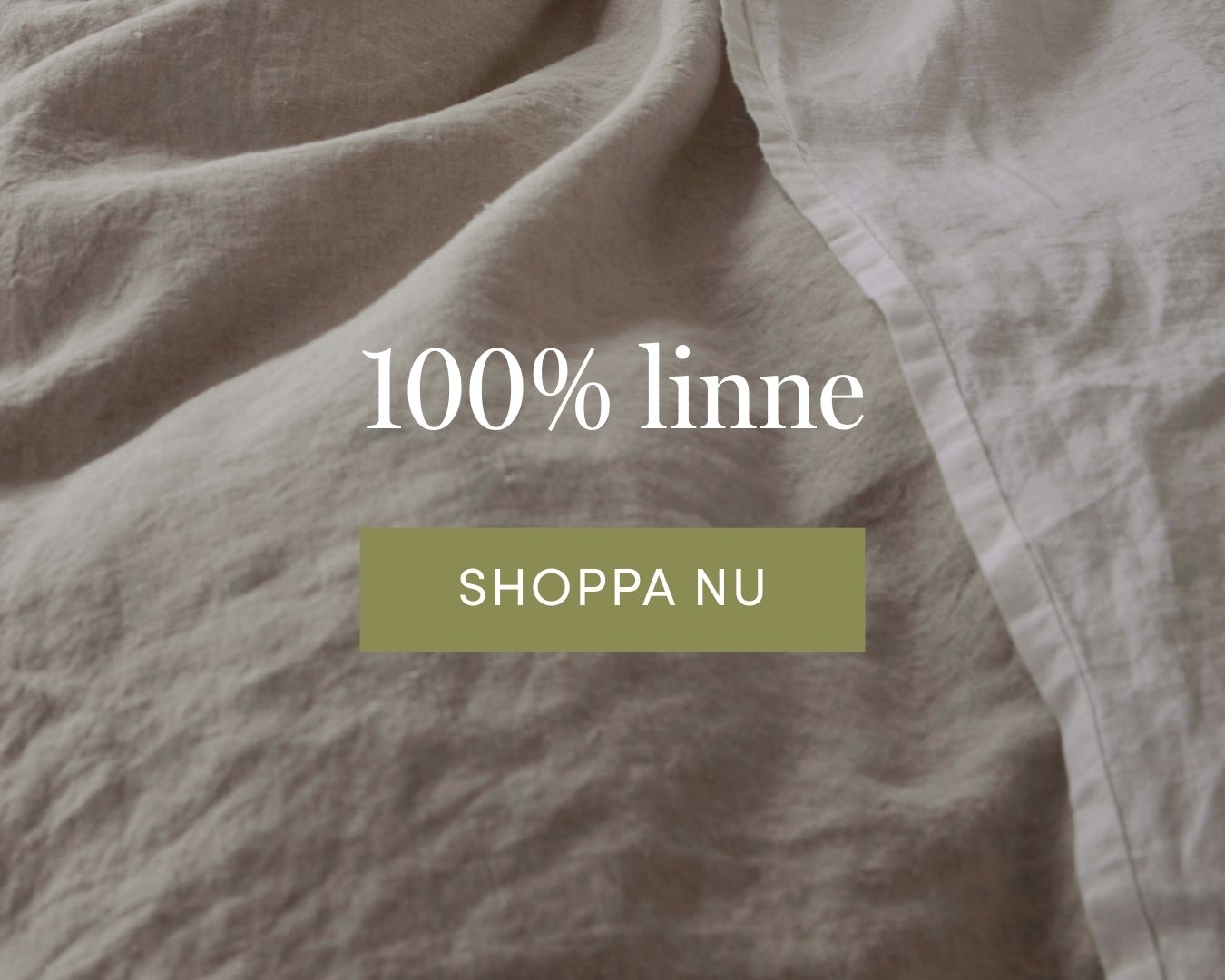B-corp certificeret
Fri retur inom 30 dagar
Hollandsk brand, som gør en forskel i 7 europæiske lande
- Bestsellers
- Sengetøj
- Dyner
- Hovedpuder
- Madrassar
- Badeværelse
- Tøj
- Tæpper
- Tilbehør
- Tilbehør
- BOLIGTILBEHØRGAVEINSPIRATION
- Børn
- Sale
- Stories
The soft polluter: what’s lurking under the covers?
Textiles are one of the major sources of environmental plastic pollution
When synthetic fibres are worn, washed or used, they release thousands of small particles of plastic known as microplastics. They find their way into our water, air and – ultimately – our bodies. We’re increasingly conscious of what we eat, drink and the products we put on our skin. But we often overlook the risks of the items that should be gentle, natural and make us feel safe: our clothes, our towels and our bedding, the material in contact with our bodies for eight hours a day.

What are microplastics?
When larger items made of fleece, polyester, nylon and acrylic – popular synthetic materials in sports clothes, everyday wear, bedding and microfibre cloths – disintegrate, they release miniscule pieces of plastic. These particles, smaller than 5 millimetres, are known as microplastics. Invisible to the naked eye, they end up in wastewater with every wash, are inhaled by us in our homes or remain suspended in the air.
Textile production is estimated to account for over a third of microplastics released into our oceans [1] – those fibres were once in our closets and bedrooms.
What about our beds?
Many of us are unknowingly sleeping under synthetic fabrics. Our soft quilts and breathable sheets are often made of synthetic, petroleum-based fibres. When used or washed, they release microplastics. And these microplastics don’t only find their way into our bodies, but also into the environment as they’re flushed away with our wastewater. And so, in a cruel turn of events, the very place we seek peace, quiet and tranquillity is a silent source of pollution.
What is Yumeko doing differently?
At Yumeko, we avoid synthetic fabrics as much as we can. Our products are made of organic and Fairtrade cotton, linen, TENCEL™ and wool. All of them are natural fibres. You won’t find any polyester, nylon, acrylic here – nor any microplastics. Our dream is for our products to be 100% plastic-free, right down to the seams, labels, closures and packaging. We know we’re not perfect, which is why we’re always looking for ways to improve.
That means our products aren’t perfect either. What they are, is cleaner, fairer and kinder to the world we wake up in every day.
We won’t pull the wool over your eyes
There’s no such thing as a zero-impact product. Even our organic cotton duvets need water, energy and labour to reach your bedroom. No brand, us included, can call itself 100% ‘sustainable’.
But we do have the power to choose natural materials, to be transparent and to design products that are gentle on you – without leaving any microplastics in your home, on your skin or in the environment.
[1] European Environment Agency (EEA), 2022 – Microplastics from textiles: Towards a circular economy for textiles in Europe.
